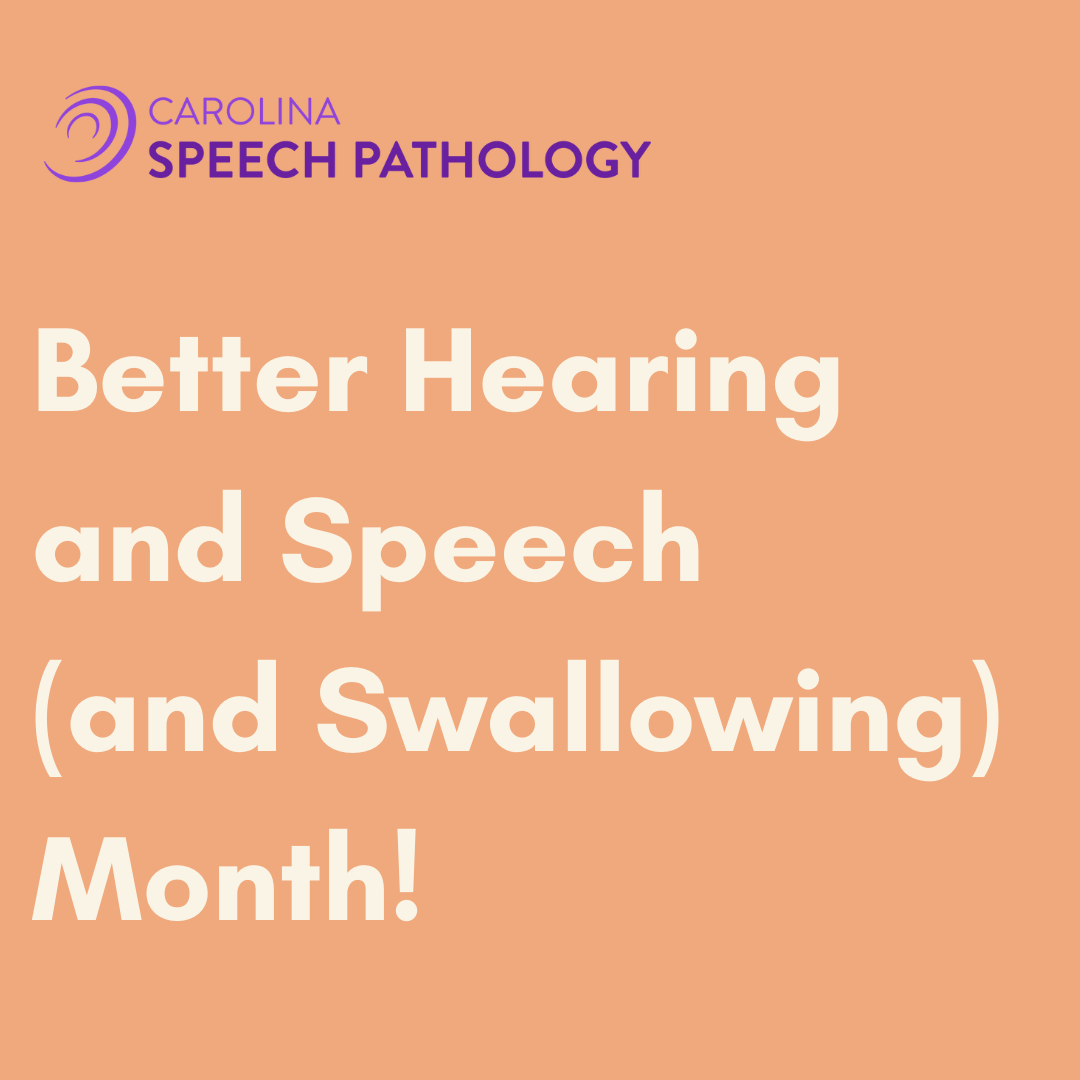According to the National Institute of Health, between 6 and 8 million people in the United States have some form of language impairment, with nearly 1 in 12 (7.7 percent) U.S. children ages 3-17 having had a disorder related to voice, speech, language, or swallowing in the past 12 months. The adults who suffer from communication disorders have often experienced a stroke, head injury, dementia, or brain tumors.
According to previous studies, dysphagia – a swallowing disorder – affects 1 in 25 adults annually. It can occur in younger people, but most people who suffer from dysphagia are over 60 years old.
In May of each year, “Better Hearing and Speech (and Swallowing!) Month” increases our awareness of communication disorders and hearing health, including those available treatment options that can improve the quality of life for those who experience problems speaking, hearing, or swallowing.
So, how do SLPs evaluate swallowing?
The Clinical Swallow Evaluation (CSE)
Speech-Language Pathologists use a clinical swallow evaluation to determine the presence or absence of the signs and symptoms of dysphagia, with consideration for factors such as fatigue during a meal, posture, positioning, and environmental conditions.
- A CSE is composed of obtaining a case history, patient/family interview, cognition and communication screening, cranial nerve examination, and direct swallowing assessment. During the CSE, information is gathered to form a hypothesis regarding the presence/absence of dysphagia and aspiration, the physiological cause of the dysphagia, and determine if and what type of instrumental examination is warranted.
- A CSE is non-instrumental and is insufficient to infer specific information about laryngeal, pharyngeal, or upper esophageal anatomy and physiology required to develop effective treatment options and prevent the consequences of dysphagia, such as dehydration, malnutrition, pneumonia, and death.
- Many patients require more in-depth testing to understand the cause of the dysphagia and how to treat it. A CSE cannot tell us anything about swallowing physiology.
- Clinical examinations:
- Underestimate aspiration risk in patients with aspiration risk, which can lead to preventable hospital readmissions
- Overestimate aspiration risk in patients who did not exhibit aspiration risk, resulting in unnecessary dietary modifications; this can negatively impact the patient.
How Your Patient Can Benefit From A FEES
FEES (Fiberoptic Endoscopic Evaluation of Swallowing) assesses how well a person can swallow.
- FEES involves advancing a small endoscope through the nasal passage to the back of the throat. It directly visualizes the movement of foods through the pharynx and identifies if the swallow is safe and efficient. A FEES has three essential parts:
-
- During the first phase, the endoscopist will complete an anatomy and physiology assessment that includes a series of non-swallowing tasks and observations of the patient’s secretions.
- The second phase involves introducing food. The endoscopist will assess the patient’s swallowing with different textures and sizes of food and liquid.
- Once the endoscopist examines the structure and physiology of the patient’s swallow mechanism and determines the least restrictive diet, the third phase involves identifying maneuvers and compensations that facilitate swallowing efficiency and improve swallowing safety. They will also assist in determining treatment targets, such as swallowing exercises. A program of exercises can reduce impairments, maintain function, and enable a speedier recovery for the patient.
- The benefits of FEES:
- Assessment of secretion management.
- There is no need to transport the patient for the procedure and no transportation costs or missed visits. We come to you.
- The patient can eat typical foods and liquids and even a full meal if indicated to assess for fatigue.
- The test is 1/4 of the price of a Modified Barium Swallow Study.
- An assessment of the patient’s structures and physiology help determine a treatment plan. We visualize the swallow while the patient eats.
- Immediate results with images provided.
Carolina Speech Pathology’s approach to FEES ensures that patients are correctly diagnosed to receive individualized care, reduce hospitalizations, and experience a better quality of life.
Here at Carolina Speech Pathology, we are patient-centric. We strive to support our customers and patients by providing resources related to FEES. You can access journal citations, websites, recorded webinars, and more on our resources web page.
If you have any questions, please reach out to us by email or phone:
- info@carolinafees.com
- 877-390-1887 (o)
- 919-342-4613 (f)

